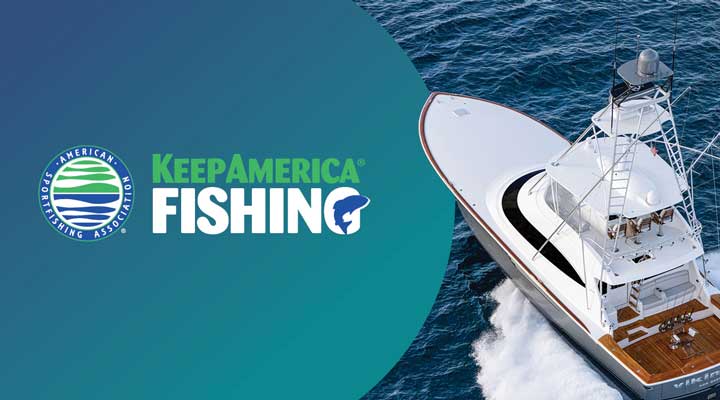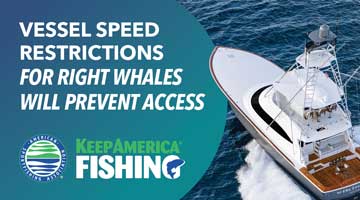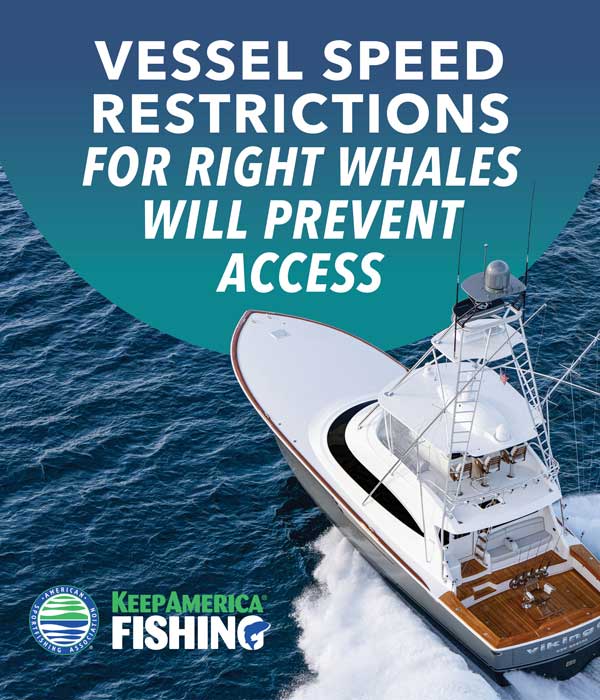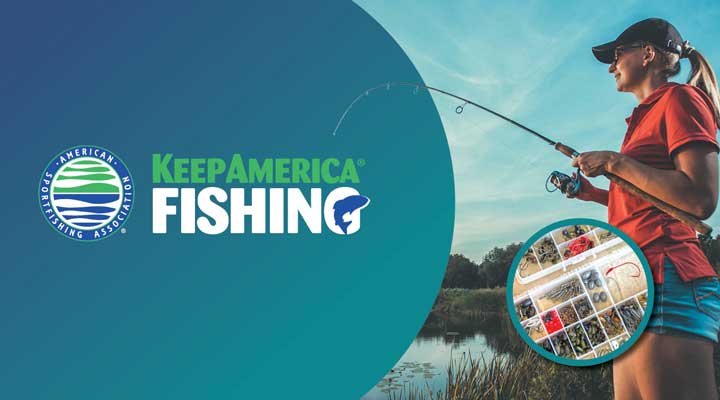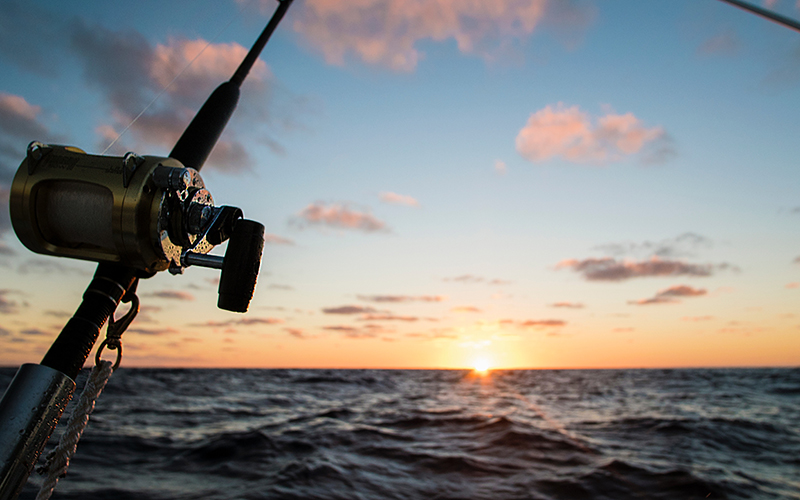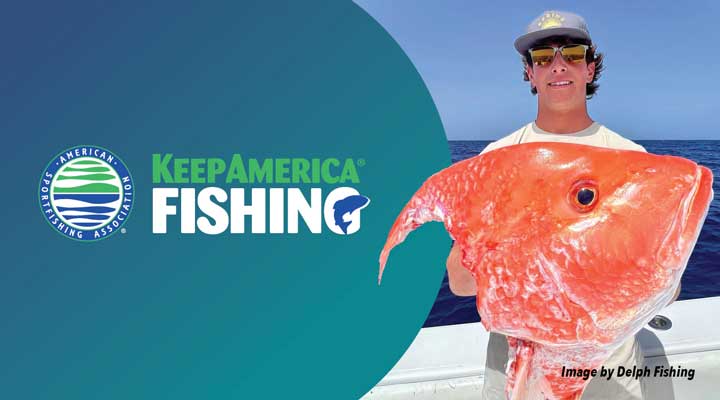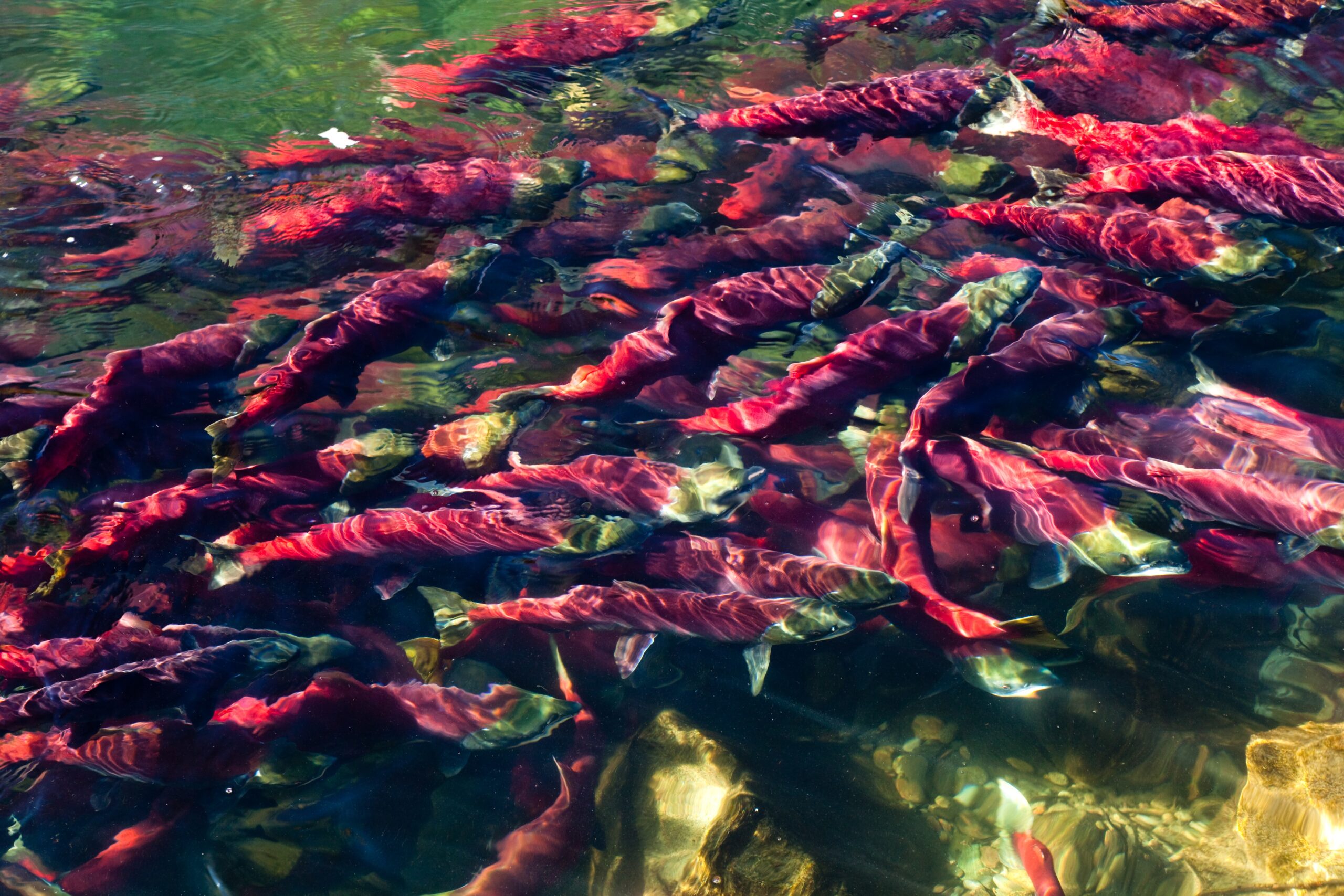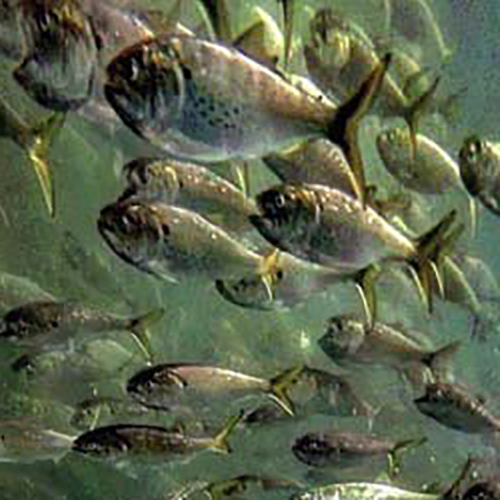The recreational fishing community cares about whale conservation but we need a smarter approach!
Please use the resources below to learn more about this important issue and how to engage your company and consumers to protect our industry.
Since last summer when the proposal was first announced to effectively shut down the Atlantic ocean to boats over 35 feet for over half the year, ASA and partners have been hard at work fighting back against this well-intentioned but poorly developed rule.
We are gaining traction and supporters on Capitol Hill, but much more work must be done to ensure this economically devastating rule, which will not help right whales in a meaningful way, does not go into effect.
Our opponents in the extreme environmental community are undermining our efforts and we need your help to share the message that the recreational fishing community cares about whale conservation, but we need a smarter approach.
What it Is
North Atlantic Right Whales are an endangered species of whale that migrates from Massachusetts to North Florida throughout the year. The National Marine Fisheries Service (NMFS) of the National Oceanic and Atmospheric Administration recently proposed a rule requiring all boats 35 feet and longer that go offshore from Massachusetts to north Florida to restrict their speed to 10 knots (11.5 mph) or slower between November to April or May. The restricted area runs from Massachusetts to north Florida up to 90 miles offshore. The NMFS cited whale mortality from vessel strikes as the reason for the proposal.
Why It Matters
ASA understands the importance of protecting right whales from extinction. They are an important part of our coastal ecosystems, and stakeholders and policymakers must work together toward their survival. Unfortunately, this rule is misguided and too intrusive. Due to the large area covered, the speed restriction will prevent offshore fishing trips from reaching their destinations in a timely manner, leaving little to no time for fishing. In addition, forcing boaters to travel at slow speeds, even in dangerous conditions, puts human safety at risk. Ultimately fishing trips won’t happen. Lost fishing days will harm the saltwater recreational fishing industry, which generates $6.3 billion in sales and supports 61,000 jobs throughout the affected region.
Although whale strikes are tragic, they are extremely unlikely by the boats covered under this proposal. Since 2008, there have been five small vessel (boats that are less than 65 feet) strikes on right whales while there have been 5.1 million fishing trips over that same period, meaning the chances of a small boat strike on a whale is less than one in a million. According to NOAA, there are 9,000 recreational boats that would be affected by this ruling while our estimates put this number closer to 63,000.
What ASA is Doing
Due to the significant impact this rule will have on anglers, boaters and coastal communities, we are calling on NMFS to pause this rule and work with us and other stakeholders on better options that protect both right whales and the outdoor recreation economy.
To that end, legislation has been introduced in Congress titled the “Protecting Whales, Human Safety and the Economy Act” that will pause the rule until emerging technology-based solutions are finalized that can better protect right whales.
What You Can Do
Resources
- Visit CoastalRecreation.org to better understand NMFS’s Proposed Speed Rule
- If you would be negatively impacted by this rule, please ask Congress to support the Protecting Whales, Human Safety, and the Economy Act!
- NOAA Fisheries: Go Slow—Whales Below – You can help save endangered North Atlantic right whales by slowing down to 10 knots or less in waters where they are likely present.
- Images for social media:
Quick Links:
Your company has tremendous reach to anglers who may not be aware of the looming threat this rule poses to fishing not only in the Atlantic but potentially nationwide if this concept continues to spread.
What YOU Can Do
For any questions or to coordinate on this campaign, please contact Rob Shane.

